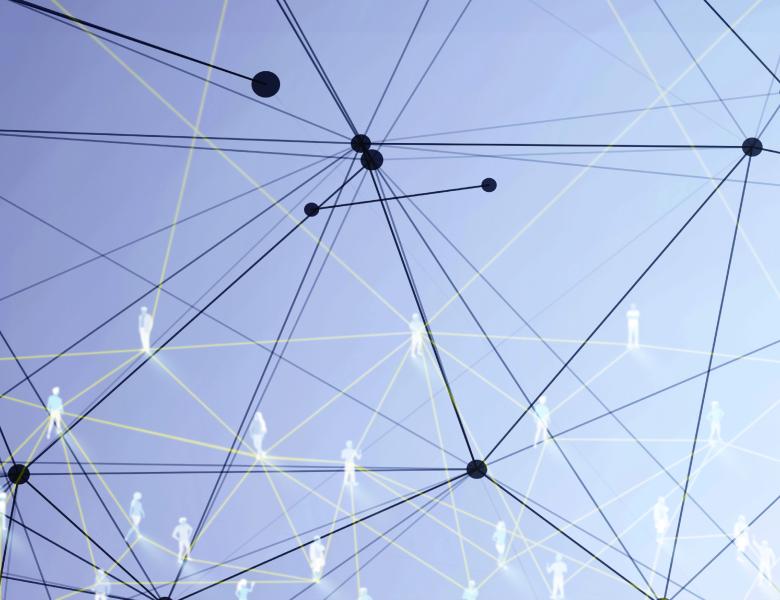We introduce a model of strategic experimentation on social networks where forward-looking agents learn from their own and neighbors’ successes. In equilibrium, private discovery is followed by social diffusion. Social learning crowds out own experimentation, so total information decreases with network density; we determine density thresholds below which agents asymptotically learn the state. In contrast, agent welfare is single-peaked in network density, and achieves a second-best benchmark level at intermediate levels that achieve a balance between discovery and diffusion. We also study how learning and welfare differ across directed, undirected and clustered networks.
